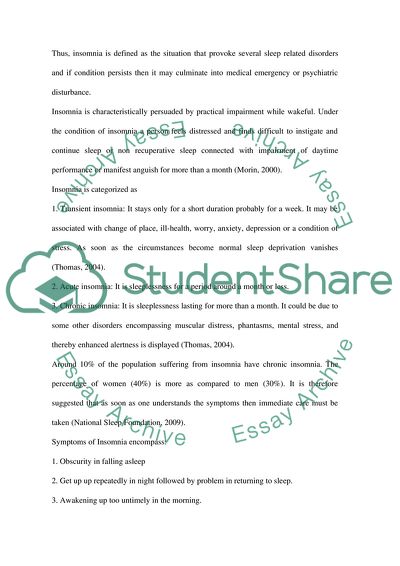Cite this document
(“Insomnia Term Paper Example | Topics and Well Written Essays - 2500 words”, n.d.)
Insomnia Term Paper Example | Topics and Well Written Essays - 2500 words. Retrieved from https://studentshare.org/miscellaneous/1573305-insomnia
Insomnia Term Paper Example | Topics and Well Written Essays - 2500 words. Retrieved from https://studentshare.org/miscellaneous/1573305-insomnia
(Insomnia Term Paper Example | Topics and Well Written Essays - 2500 Words)
Insomnia Term Paper Example | Topics and Well Written Essays - 2500 Words. https://studentshare.org/miscellaneous/1573305-insomnia.
Insomnia Term Paper Example | Topics and Well Written Essays - 2500 Words. https://studentshare.org/miscellaneous/1573305-insomnia.
“Insomnia Term Paper Example | Topics and Well Written Essays - 2500 Words”, n.d. https://studentshare.org/miscellaneous/1573305-insomnia.


